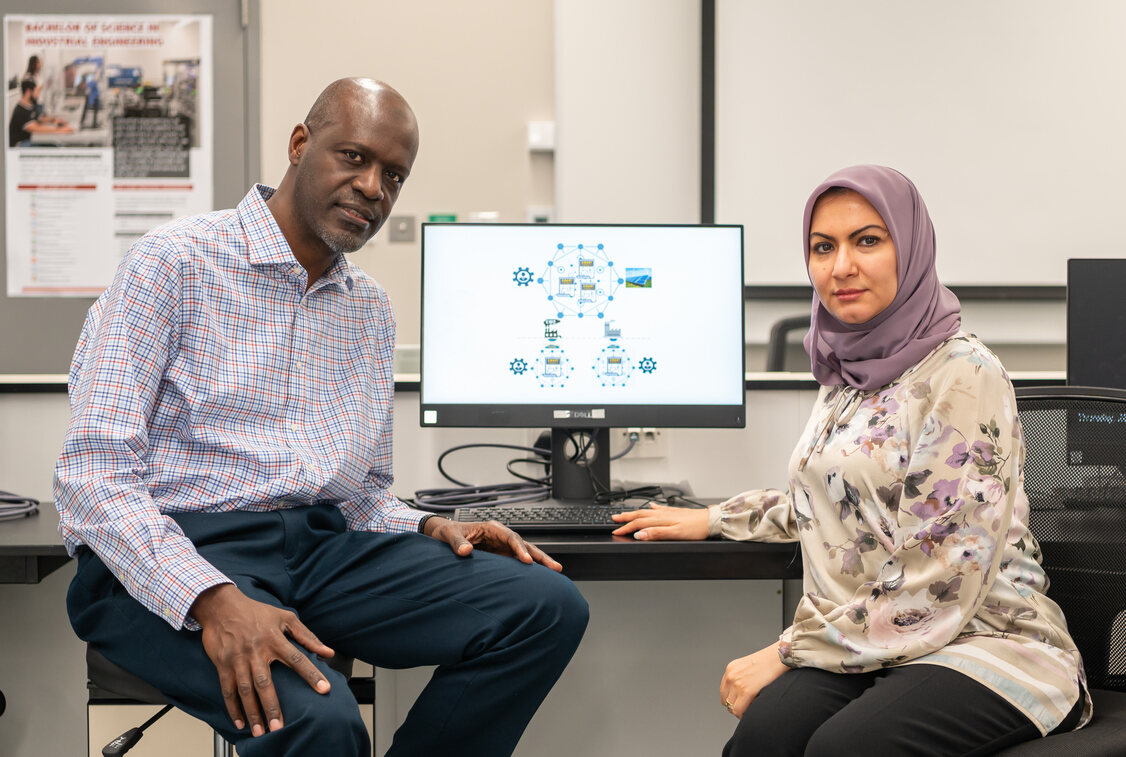In a move towards combating climate change, a research team at the American University of Sharjah (AUS) has unveiled an innovative blockchain system designed to enhance the carbon credits trading (CCT) market. This solution marks a important moment in the ongoing battle against carbon emissions and environmental degradation.
Carbon credits trading operates as a pivotal tool in the fight against climate change, employing a marketplace where entities can buy and sell credits permitting a designated amount of carbon dioxide emissions. These credits enable governments to enforce emission limits, incentivizing companies to reduce their carbon footprint and invest in cleaner technologies.
The AUS research team’s blockchain system seeks to rectify the inefficiencies plaguing existing CCT platforms. By automating crucial components such as participant registration, credit generation, tracking, and trading, as well as carbon emission measurement, the new system promises increased transparency, immutability, and credibility of operations and data records.
Dr. Malick Ndiaye, Professor in Industrial Engineering and lead researcher, emphasized the transformative potential of the innovation: “This breakthrough streamlines the carbon credit trading process, offering significant advantages such as cost reduction, processing time optimization, and mitigation of risks associated with double-spending and opacity, which are prevalent in current CCT systems. Moreover, it aligns seamlessly with the United Nations’ mission to combat climate change by empowering governments to leverage CCT effectively.”
Dr. Ndiaye further highlighted the broader societal benefits of the technology: “Beyond environmental gains, the new system holds promise in curbing air pollution, fostering a healthier environment, and reducing the prevalence of respiratory illnesses associated with poor air quality. By driving down operational costs and processing time in carbon credit trading, it creates economic opportunities, stimulates investment in sustainable technologies, and fuels overall economic growth. Importantly, our technology ensures equitable access to carbon credit trading, thus promoting social justice and inclusion.”
During a Q&A session with UNLOCK Blockchain, Dr. Ndiaye explained the inspiration behind developing the blockchain system. He said, “Climate change has always been of concern to us as researchers who believe in the impact of scientific approaches in improving people’s lives. While studying the available solutions, we found that carbon credits trading is the main practical sustainable tool adopted to combat climate change. However, it was not invested into its full potential due to implementation inefficiencies. With the advent of blockchain technology, we were inspired to utilize its distinctive features to serve a better cause by creating a blockchain-based management system for the carbon market.”
Responding to whether COP28 was a main incentive for AUS to work on such a project, Dr. Ndiaye clarified, “We started the work 2-3 years prior to COP28. We were fortunate to present some of the research findings during the event with the support of the Sharjah Entrepreneurship Center (Sheraa).”
Moreover, regarding the current status and future plans for implementing the AUS blockchain system, Dr. Ndiaye elaborated, “We are currently working to prototype a real-time carbon measurement system here at AUS with a dashboard capability to analyze data and support the decision-making processes. Our aim is to commercialize the technology via a spinoff and are fully supported by AUS and Sheraa.”
On the role of the Technology Transfer Office (TTO) at AUS in supporting the research team, Dr. Ndiaye explained, “The TTO is involved in the IP protection of the technology. In addition to this, the TTO is also assisting in putting all the building blocks necessary to set up a spinoff and to commercialize the technology.”
Last but not least, regarding whether blockchain is part of AUS’ educational program, Dr. Ndiaye stated, “Blockchain is already part of some of our courses content here at the Industrial Engineering Department. Graduate students from the Engineering Systems Management continue working on blockchain-related topics as part of their research thesis. Nonetheless, I am not aware of a full-fledged program on blockchain at AUS.”
With this said, it fills the blockchain community with great satisfaction and optimism to witness the active involvement of universities in pioneering projects that hold the potential to revolutionize our world. The dedication of academic institutions, such as AUS, to exploring and advancing blockchain technology is not only commendable but also indicative of the profound impact this innovation can have on various aspects of our lives.
With such promising initiatives underway, there is a hopeful anticipation for the development of comprehensive programs and diplomas centered around blockchain technology, ensuring that future generations are equipped with the knowledge and skills necessary to harness its full potential for the betterment of society.
The post AUS Unveils Blockchain System for Carbon Credits Trading, Insights From Q&A Session appeared first on UNLOCK Blockchain.

